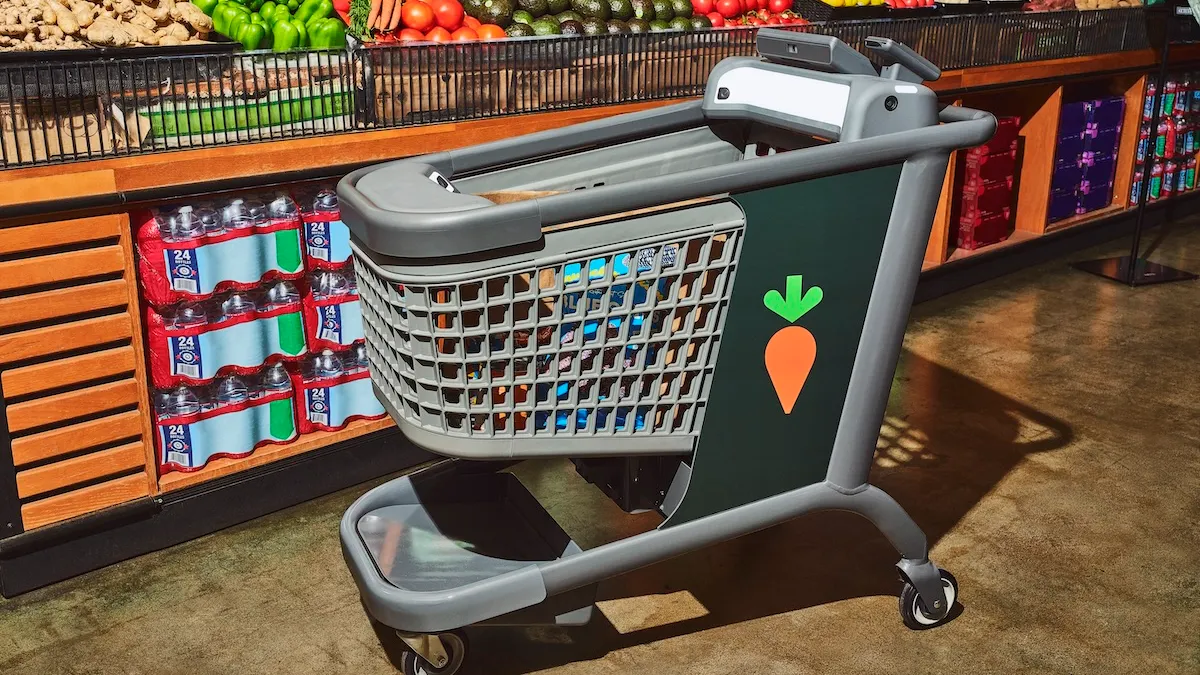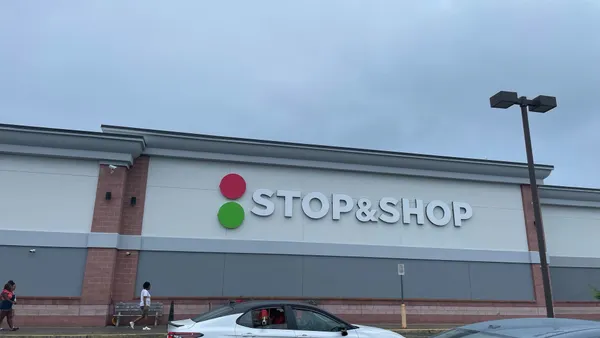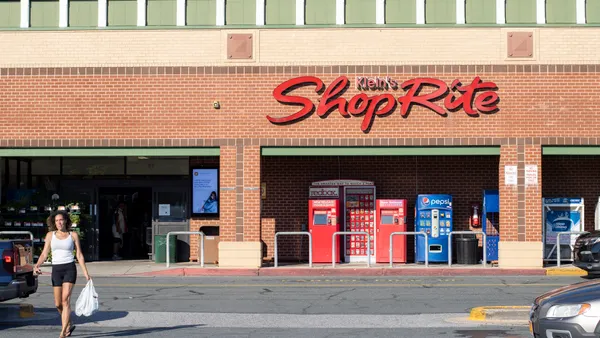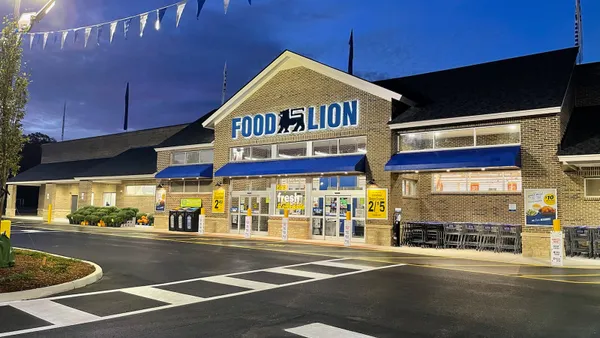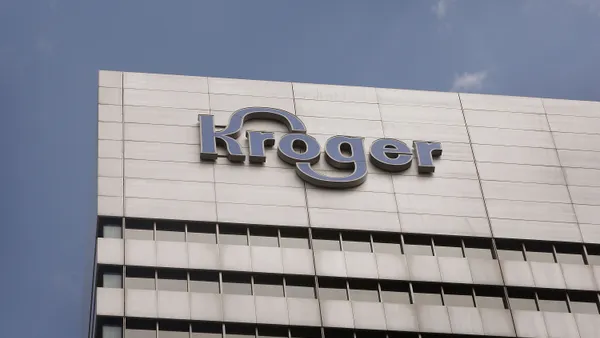As Amazon continues its push into the grocery industry — including a widespread expansion of same-day delivery for perishables — Instacart’s CEO told investors during the company’s third-quarter earnings call Monday that it is positioning itself as a key player in helping supermarkets defend against the e-tailer.
Instacart has assessed the top markets where it overlaps with Amazon and found that it’s continuing to grow amid the competition and isn’t seeing significant changes in order sizes, said Chris Rogers. Rogers stepped into the CEO role in mid-August after serving as chief business officer.
“Third-party data is showing that the largest source of Amazon.com grocery customers has been the in-store customers, and so we are using this as a rallying cry with retailers where we're already deeply embedded and who need omnichannel strategies to compete,” Rogers said.
To this end, Instacart is focused on deepening existing retailer partnerships, adding in-store tools like smart carts and adjusting pricing strategies.
“Some of our large retailers are testing price-parity pilots right now in some of the major cities … I do think that retailers are keenly aware of what’s happening in the competitive dynamic,” Rogers said.
Instacart has said it’s tackling grocery affordability woes plaguing consumers, from adding weekly digital flyers to integrating loyalty programs, Rogers said. As people are increasingly comparing prices online, Instacart is seeing retailers reduce markups and offer sale pricing, Rogers said.
Instacart continues to encourage retailers to match online prices with those in-store. Over the past year, retailers that offer price parity have, on average, grown more than 10 percentage points faster than retailers that haven’t, Rogers said in a shareholder letter. They also retain customers better, he added.
Regional grocers Choices Market and Jerry’s have rolled out price parity, while several unnamed national and regional grocers have launched pilots in markets around the country, Rogers noted in the shareholder letter.
Instacart executives also told investors that the company is accelerating its enterprise business, which includes its e-commerce storefront tools, fulfillment solutions and electronic shelf label technology. The company’s acquisition of e-commerce solutions provider Wynshop earlier this year is paving the way for more international expansion, the shareholder letter said. Wyshop currently powers storefronts for retailers in Europe and Australia.
Still, third-party delivery remains a core part of Instacart’s business. Rogers pointed to Kroger’s announcement last week that Instacart is its “primary” delivery fulfillment partner: “That’s a great example, a strong vote of confidence in the value that we bring.”
Instacart recorded another consecutive quarter of growth in key financial metrics. During its Q3, which ended Sept. 30, the company’s gross transaction value rose 10% year over year to nearly $9.2 million, orders rose 14% to over 83 million and total revenue rose 10% to $939 million.


